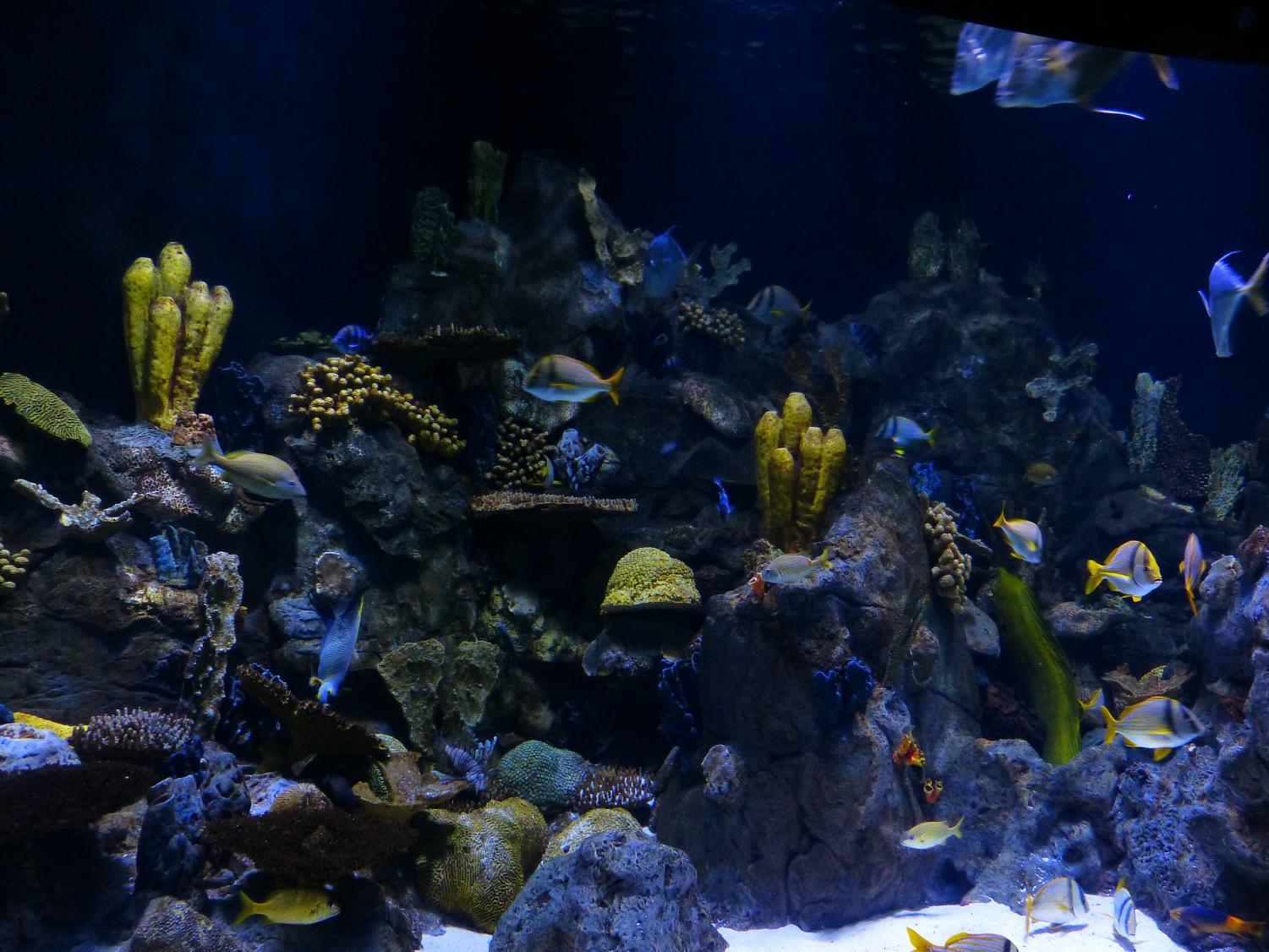Midwesterners should treat the coral reefs as if they are in the Great Lakes
September 14, 2020
The coral reefs are an underwater masterpiece. Covering around 110,000 square miles of our ocean floor, these structures are what 25 percent of all marine life call home. But with the water getting warmer, overfishing, and water pollution, these aquatic cities could be no more, threatening life as everyone, even midwest residents, knows it.
Due to human kind’s obsession with greenhouse gases, water temperature is elevating throughout the earth, and although you might like lukewarm water to go for a dip, the reefs do not. This temperature kills off the algae that makes the food the corals consume. Without replenishing themselves, the corals become bleached. This extremely diverse underwater ecosystem is not the old pair of jeans you want to lighten. Entire aquatic communities are at risk of being completely wiped out.
Not only are we hurting the inhabitants of the reefs by ignoring preservation efforts, but we are harming ourselves. Without the corals, billions of people would lose a substantial food source, most importantly those who live on smaller islands.
From an economic standpoint, the coral reefs are aquatic money trees. In fact, Elon Musk’s estimated net worth of 24.5 billion dollars is five billion dollars shy of the coral reef’s net benefit of 29.8 billion dollars per year. All of the services operated because of the reefs, such as fisheries, will be exterminated along with the corals. Coastal economies also thrive off tourists, which alone brings in around 9.6 billion dollars per year around the snorkeling globe.
Humans without reefs are like Captain America without his shield. A nourished, durable coral reef structure helps block waves and tropical storms from the shores, saving homes and lives. The coast needs it’s superheroes now more than ever, and we are turning a blind eye.
As midwesterners, this situation seems so distant. There is no coral in Lake Michigan, how could we possibly benefit from these structures? Well, just like those who live on the coast, midwestern residents have conditions such as cancer, asthma, arthritis, virus, or ulcers. Those corals that are so far away house organisms that are currently being used to develop new medicines to treat those conditions. And although you will not find many fisheries in the suburbs of Chicago, your beloved seafood place is only miles away and very likely supported by the reefs.
Americans tend to shed a tear about sad situations that do not affect us immediately and visibly and move on. We have been putting climate change on the backburner, and it is time for us to wake up and smell the greenhouse gases. If we all start doing our part (and realize mother nature is not a maid) we could help heal and prevent some of the damages.
Small actions can be done to help the reefs. Pick up your trash so it does not make its way into the ocean and harm the coral colonies. The three R’s (reduce, reuse, and recycle) was not just a catchy song by Jack Johnson but a great way to remember that repurposing could save lives.
Avoid using substances such as fertilizers and pesticides, as harmful chemicals within them make their way into the water runoff and pollute the water. Many sunscreens rub off in the water and pollute as well, so using reef-safe sunscreen on that spring break trip to Maui is vital.
There are a plethora of resources you can find to donate to organizations whose mission is to protect and preserve the coral reefs, such as places like The Coral Reef Alliance. Most importantly, spread the word. Change starts when enough people get angry about what is going on.
